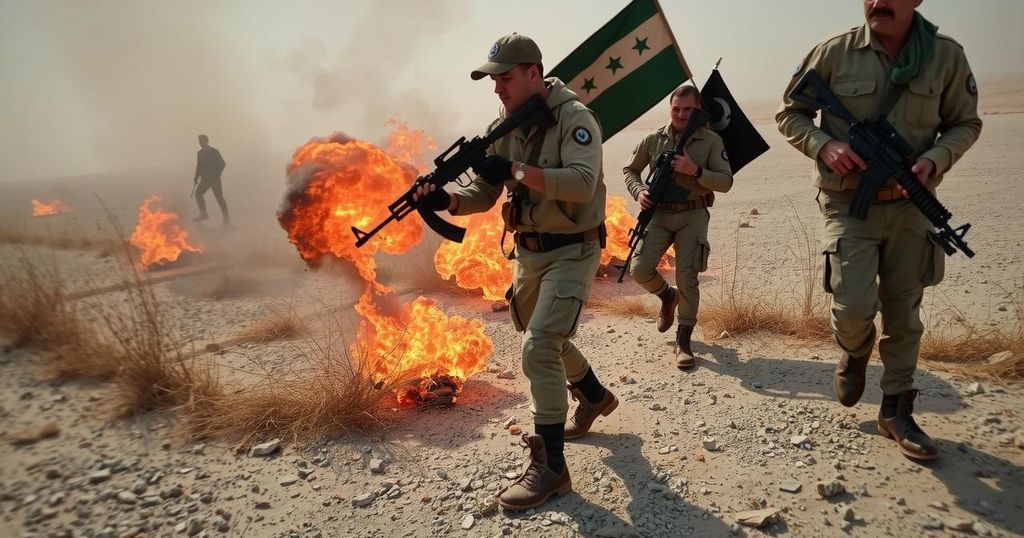Syrian Rebels Make Advances, Prompting Border Closures in Neighboring Countries

Syrian rebel forces are making significant territorial advancements toward Homs and Damascus, raising concerns in neighboring countries such as Lebanon and Jordan, which have intensified border security. The situation signifies a serious challenge to President Bashar al-Assad’s power amid continued struggles for control and stalled diplomatic resolutions in the civil war.
As the coalition of Syrian rebel forces intensifies its offensive, it has captured significant territories, leading to a marked acceleration in their advances towards key locations such as the urban center of Homs and the capital city of Damascus. This surge has ignited fears among neighboring nations, prompting Lebanon and Jordan to fortify their borders, while Israel has bolstered its military presence in the Golan Heights. Notably, the relentless push by these rebels poses an unprecedented challenge to President Bashar al-Assad’s authoritarian regime, which is evidently struggling to maintain control over vital regions in Syria.
In a simultaneous development, a Kurdish-led faction, backed by the United States, has taken action in Deir al-Zour, a city previously held by government forces, further illustrating the fragmentation of Assad’s grip on power. Amidst a backdrop of diplomatic stalemate in efforts to resolve the Syrian civil war, the strategic movements observed signify a crucial juncture in the multi-faceted conflict.
The primary group leading this renewed assault on Assad’s forces is Hayat Tahrir al-Sham, which, despite its split from Al Qaeda in 2016, is still met with designations of terrorism by both the United States and the United Nations. As violence resurfaces dominantly, the ramifications of these developments extend beyond Syrian borders, invoking heightened vigilance from regional governments that strive to mitigate the possibility of spillover chaos.
The Syrian civil war, which has persisted for over a decade, remains a significant geopolitical concern, frequently influenced by the engagements of various factions, including rebel groups, government forces, and international backers. Recently, the dynamics have shifted, as rebel coalitions have made substantial territorial gains, raising alarms in surrounding countries due to the risk of destabilization. Attempts at diplomacy have largely stalled, leaving armed conflict as the predominant reality in Syria. These circumstances are compounded by the presence of internationally recognized groups with varying objectives, complicating the potential for a peaceful resolution.
The aggressive movements by rebel forces in Syria mark a critical escalation in the ongoing conflict, challenging President Assad’s authority while prompting neighboring states to respond with increased border security measures. The involvement of various factions, including Kurdish forces and long-standing rebel groups like Hayat Tahrir al-Sham, illustrates the complexities of the situation. As diplomatic initiatives remain stagnant, the international community watches closely, aware that the consequences of this turmoil could reverberate throughout the region.
Original Source: www.nytimes.com








